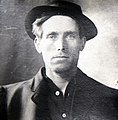Our website is made possible by displaying online advertisements to our visitors.
Please consider supporting us by disabling your ad blocker.
Portal:Organized Labour

Introduction

- In trade unions, workers campaign for higher wages, better working conditions and fair treatment from their employers, and through the implementation of labour laws, from their governments. They do this through collective bargaining, sectoral bargaining, and when needed, strike action. In some countries, co-determination gives representatives of workers seats on the board of directors of their employers.
- Political parties representing the interests of workers campaign for labour rights, social security and the welfare state. They are usually called a labour party (in English-speaking countries), a social democratic party (in Germanic and Slavic countries), a socialist party (in Romance countries), or sometimes a workers' party.
- Though historically less prominent, the cooperative movement campaigns to replace capitalist ownership of the economy with worker cooperatives, consumer cooperatives, and other types of cooperative ownership. This is related to the concept of economic democracy.
The labour movement developed as a response to capitalism and the Industrial Revolution of the late 18th and early 19th centuries, at about the same time as socialism. The early goals of the movement were the right to unionise, the right to vote, democracy, safe working conditions and the 40-hour week. As these were achieved in many of the advanced economies of western Europe and north America in the early decades of the 20th century, the labour movement expanded to issues of welfare and social insurance, wealth distribution and income distribution, public services like health care and education, social housing and common ownership. (Full article...)
Selected article
Industrial unionism is a trade union organising method through which all workers in the same industry are organized into the same union, regardless of skill or trade, thus giving workers in one industry, or in all industries, more leverage in bargaining and in strike situations. De Leon believed that militarized Industrial unions would be the vehicle of class struggle.
Industrial unionism contrasts with craft unionism, which organizes workers along lines of their specific trades. (Full article...)
January in Labor History
Significant dates in labour history.
- January 01 - The 1966 New York City transit strike began; the United Transportation Union was founded; the Swedish Trade Union Confederation was founded; Union Network International was founded; the Workplace Relations Act 1996 entered into force in Australia
- January 02 - The Sago Mine disaster occurred in the 2006 in the U.S.
- January 03 - The 1929 Australian timber workers' strike began; Guy Ryder was born
- January 04 - The St. John's University strike of 1966–67 began in the U.S.; the Oil, Chemical and Atomic Workers International Union merged in 1999 with the United Paperworkers International Union to form the Paper, Allied-Industrial, Chemical and Energy Workers International Union
- January 05 - The 1891 Australian shearers' strike began; the 1919 Spartacist uprising began in Berlin
- January 07 - Edward T. Hanley died; A. P. T. James died
- January 08 - SEIU Local 1.on was founded
- January 09 - Maurice Hutcheson died; Sol Chick Chaikin was born
- January 11 - The 1912 Lawrence textile strike began in the U.S.; Paper, Allied-Industrial, Chemical and Energy Workers International Union merged with the United Steelworkers; Bogdan Borusewicz was born
- January 12 - Cornelius Shea died
- January 14 - The Reesor Siding strike of 1963 began in Canada; Joseph Glimco was born
- January 15 - Michael Sommer was born; the song "Solidarity Forever" is written; the Steel strike of 1959 ends in the U.S.
- January 16 - Dutta Samant was murdered; Leonard Woodcock died; Daniel John O'Donoghue died
- January 17 - Pablo Manlapit was born
- January 18 - The U.S. Supreme Court decided Moyer v. Peabody in 1909; Mary Kenney O'Sullivan died; the 1912 Brisbane general strike began in Australia; the Dublin Lock-out ended in 1914; Paul Keating was born; the Great Bombay textile strike began
- January 19 - Thomas Kennedy died; Morris Kight died; Bill Andersen died; Annie Buller died
- January 20 - The Tunisian General Labour Union was founded; trade unions launched the 2005 civil unrest in Belize; Harriot Eaton Stanton Blatch was born; Bruce Nissen was born
- January 21 - Edward T. Hanley was born; Bill Andersen was born; J. H. Thomas died; Nicholas Pollard Sr. died
- January 22 - The United Mine Workers was founded; Terence V. Powderly was born; Andrew Furuseth died; Chea Vichea was murdered; Gyula Peidl died; Ong Teng Cheong died
- January 23 - David Sullivan died; Nikolaus Gross died
- January 24 - The Wapping dispute began in 1986 in the U.K.; Emil Rieve died; the 1977 Massacre of Atocha occurred in Spain; Henri Krasucki died; Herbert Hill was born; the Supreme Court of Canada issued its reasoning in R.W.D.S.U., Local 558 v. Pepsi-Cola Canada Beverages (West) Ltd.; the Alliance for Labor Action was dissolved
- January 25 - The Sheet Metal Workers' International Association was founded; Matthew Woll was born; Chummy Fleming died
- January 26 - Bernard Kleiman was born
- January 27 - Samuel Gompers was born; the U.S. Supreme Court decided Lechmere, Inc. v. NLRB; Ben Tillett died; the U.S. Supreme Court decided Adair v. United States; Frank Tudor was born
- January 28 - Mike Quill died; Harry Lundeberg died; Mike Moore was born; James Scullin died
- January 29 - The Timex strike began in 1993 in Scotland; Anna LoPizzo died; John M. Dunn died
- January 30 - Edward Heitmann died
- January 31 - The 1919 Battle of George Square occurred in Scotland; New Orleans fired all members of the United Teachers of New Orleans in the wake of Hurricane Katrina; Bob Semple died
More Did you know (auto-generated)
- ... that members of the Trade Union Opposition Federation stormed the Copenhagen Stock Exchange?
- ... that M. Farooqui, who had been expelled from his studies for having organized a strike in 1940, received his Delhi University degree in a special convocation in 1989?
- ... that the opening day of a California TV station was affected by a strike when workers refused to cross a two-man picket line?
- ... that Amazon Labor Union founder Chris Smalls was one of the leaders in the first successful effort to unionize Amazon warehouse workers in the United States?
- ... that in 1977, Appalachian folk singer Phyllis Boyens performed at a Christmas benefit concert to support Kentucky coal miners who had been on strike for 17 months?
- ... that on March 2, 2022, 86 percent of workers in New York City's REI store voted in favor of the outdoor recreation retailer's first ever trade union, REI Union SoHo?
Related Portals
Selected image
Selected Quote
"To a right-winger, unions are awful. Why do right-wingers hate unions? Because collective bargaining is the power that a worker has against the corporation. Right-wingers hate that."
|
— Janeane Garofalo |
Did you know
- ...that partly because of issues highlighed by the London matchgirls strike of 1888, the Salvation Army opened up its own match factory in Bow, London in 1891, which used harmless red phosphorus and paid better wages?
- ...that more than 200,000 railroad workers participated in the Great Southwest Railroad Strike of 1886, and the strike's collapse directly led to the formation of the American Federation of Labor?
- ...that Irish American mob informant Danny Greene drove a green car, wore green jackets, and had his union office repainted and recarpeted in green?
Topics
Get involved
Also see our sister WikiProject, Housing and Tenant Rights!
Associated Wikimedia
The following Wikimedia Foundation sister projects provide more on this subject:
-
Commons
Free media repository -
Wikibooks
Free textbooks and manuals -
Wikidata
Free knowledge base -
Wikinews
Free-content news -
Wikiquote
Collection of quotations -
Wikisource
Free-content library -
Wikiversity
Free learning tools -
Wiktionary
Dictionary and thesaurus
Previous Page Next Page

















































































